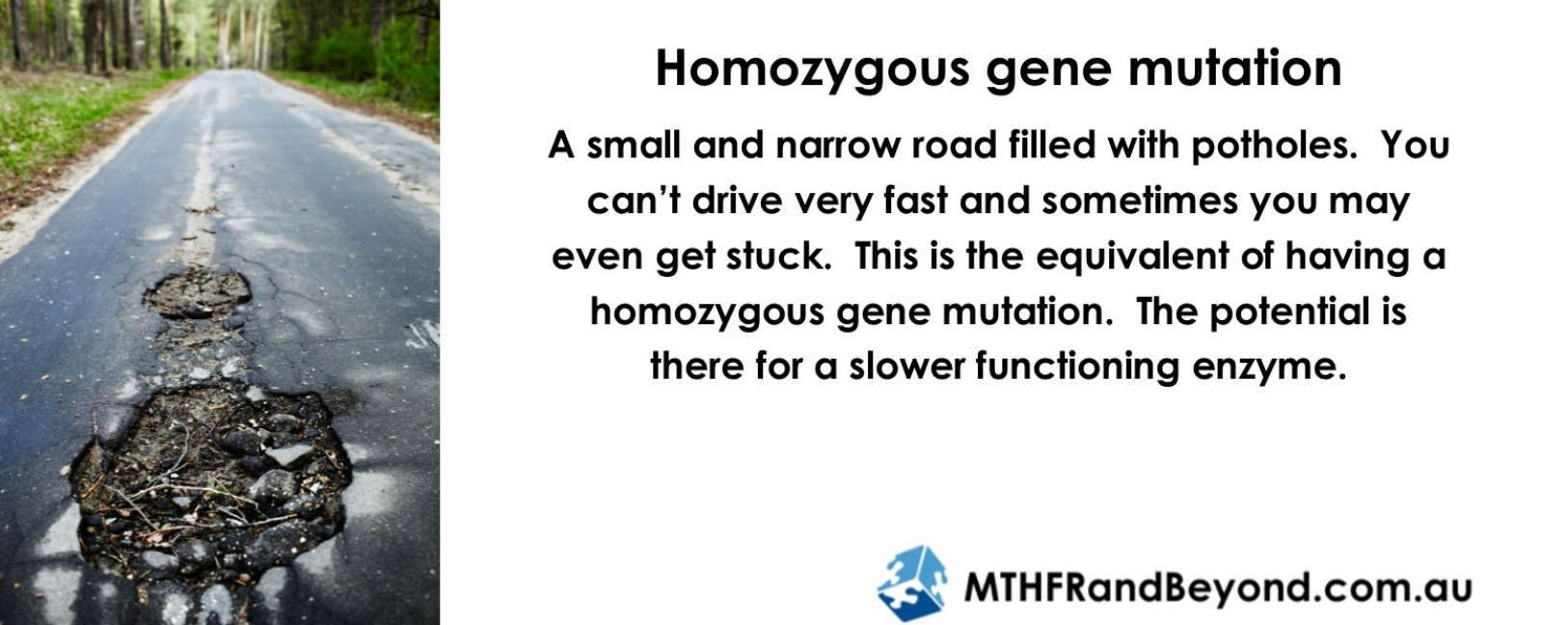Genetic testing has been a hot topic of late, with many companies jumping on the bandwagon of this fast growing sector in the health and wellness industry. Some gene reports hold more truth than others, so you have to do your research before running your raw data through a gene report application. I’m not going to name names here, but there are a lot of dodgy operators out there.
Some of you may have noticed that you get conflicting results within the same genes after running your raw data through a variety of popular applications.
WHY?
Because it depends on the weight each report gives to the severity of the mutation. And this in turn depends on the amount of research they put into the subject themselves. For this reason there are only a handful of reports I would consider worth the paper they are written on.
That is my first point. The second is that genetic polymorphisms are simply the blueprint or the road map of possibilities. Does that mean you necessarily have a problem? No. Let me explain…
Genes encode for enzymes. The more SNP’s (snips) or mutations you have on a gene, the higher the likelihood of a slower enzyme function. Let’s use the analogy of a highway here.

GENES AND ENZYMES AS HIGHWAYS
Imagine a road that is small, narrow, and maybe filled with potholes. Travel times will be slower and you may even git stuck along the way. This is the equivalent of having a homozygous gene mutation or having SNPs on a gene. The enzyme has limited capacity to move everything through that needs to go through which may lead to a build up of precursors or substrates and a deficiency in end-product.
If things work out you may be able to get off this road and find an alternate route to your destination. Your body does this too to some extent. If enzymes in a pathway are too slow or overwhelmed with too much substrate, other pathways that are working better may be able to pick up the slack and finish the job. It’s not always ideal, but hey, beggars can’t be choosers. Problems occur when these other ‘alternate pathways’ are also slow, and this is why some people have more severe symptoms associated with a gene mutation than someone else who may have the exact same gene mutation.

If the road is just busy, but still manageable, you can still navigate your way around. Maybe not as fast as you would like, but it’s not standing still. This is the equivalent of having a heterozygous gene mutation or having SNPs on only one allele of a gene.

Now, if you have a nice open highway. no traffic around, you can drive as fast as you want (depending on the speed limit off course :)). This is the equivalent of having NO gene mutation or SNPs AT ALL. But keep in mind, this is from a genetic blueprint perspective…not accounting for genetic expression.
SO WHAT ABOUT GENETIC EXPRESSION?
Let me share something personal with you. I have all the genetic mutations for diabetes and obesity. Am I diabetic and obese? No. I’ve been an athlete most of my life, never been obese, never been diabetic. However, I’m sure if I ‘let myself go’ I have a high risk of developing these disorders. But it still doesn’t mean that this is my destiny.
Do I take supplements for my gene mutations? No. Because I’m not expressing them.
Environmental challenges and lifestyle factors are what makes genes express, regardless of the presence or absence of gene mutations.
Things such as:
-
Diet and exercise habits
-
Sleep patterns and stress
-
Infections and toxin exposure
Gene SNPs just create the weak spot. You need to be able to assess gene expression.
How do you do that?
Well, through the following:
- Your symptoms
- Your case history
- Your functional tests
What do we mean by functional tests?
- CSA (Complete Stool Analysis)
- OAT (Organic Acid Test)
- Blood biochemistry
- DUTCH hormone testing
- Heavy metal testing
- And many, many others…
This is where you need to work with someone who understands functional testing and more importantly, knows how to interpret functional test results. Note that I didn’t say read test results. Trust me. It’s more than just reading the report attached to the test results.
The point being:
- Consider the limitations of genetic testing
- Consider the value of functional tests that may indicate gene expression directly
- Consider the importance of treating you as the person, and not the test






Elizma, I just heard your talk on dirty genes. I just love your approach and wish I had access to you. I’ve spent last three years with Functional Medicine Doctor who figures diagnosing SIBO was a completion on his duties. I’ve treated my SIBO i believe 7times. I convinced there is underlying issue. I have now moved to a remote area where we have a couple of NP only (no FM). So I did go to one and I’m pretty sure I’m more familiar with SIBO than she is. So, I asked her to first test my heavy metals. Waiting for results. She has no experience with genetics and I have MTHFR. I’m sort of on my own here. I was so glad to hear your talk. I’ve started a program to clear Candida since there is a good chance I have. I did acid testing; however, it has been a couple of years now. I liked that you could look at the results and determine where in the methylation cycle you could support. Short from becoming a dr, can you guide me where I can get this information? I am waiting for Dr Lynch’s book, but I don’t think it will have that kind of info. Thank you, Marlene
Hi Marlene, thank you for your lovely comments. I do skype or phone consultations if this is something that interests you.
Unfortunately many patients are becoming smarter than their doctors out of desperation.
If you are patient, me and Dr. Lynch are working together getting an Organic Acid Test course ready for people like you 🙂
I listened to your talk on the Dirty Genes summit also, and I really like your approach. Great presentation! You are right that patients want to move beyond their doctors. Some of us have long ago handled clean water, air, and food, and are a bit stumped on what to eat when even cruciferous and oxalates are a problem. Misdiagnosed for many years, even by naturopaths and other practitioners, including one genetic analysis and cleanse programs that nearly ended me; along with an endless stream of supplements that we don’t even know are appropriate or capable of being absorbed in the body’s current state. I retreated to dietary changes and no detox other than exercise and sauna. Better but not yet 100%. Great that you and Dr. Lynch are working together on the organic acids tool. My mind likes to visualize what should happen and what is happening, so the data and the understanding of it are satisfying.
Hi Alexandria,
I’m glad you enjoyed the interview. Based on your comments, you are on the right track. I wish you all the best in your journey because we need to get people like you better.